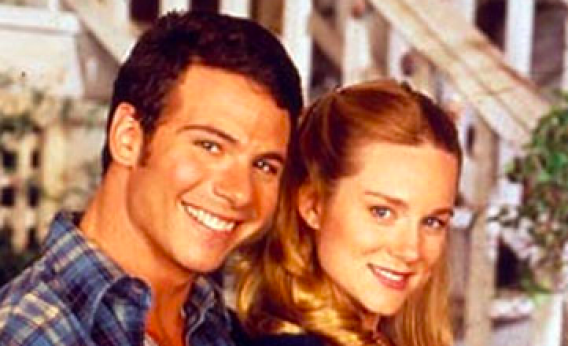I’m glad to report that the 20th-anniversary edition of the classic TV miniseries, Armistead Maupin’s Tales of the City, released Tuesday, is not one of those anniversary re-releases that are little more than bald-faced attempts to give a tired old title one last moment in the sun. In fact, it has a killer extra that you won’t find on Hulu and that hasn’t been available in the United States before: Three of the episodes feature commentary tracks that shed new light on the Tales of the City books—about a group of gay, straight, bisexual, and transgender friends and lovers living in San Francisco, beginning in the late 1970s—and on Maupin’s creative process. They’re also immensely charming.
The commentary gets off to a rocky start when director Alastair Reid declares that he rejected the “mumbo-jumbo” that the series needed a gay director and announces that if one had been hired, “the film would have wallowed in camp.” (And he doesn’t mean that as a compliment.) That’s the only jarring moment, however. After that, actresses Laura Linney, Olympia Dukakis, and Barbara Garrick say nice things about each other and the rest of the cast (which really was spectacular—Dukakis was already an established actress, but Channel 4 hired Linney, Billy Campbell, Thomas Gibson, and Paul Gross before they’d made their names), but they also share some fascinating stories about how they found their characters.
Dukakis, for example, reveals that she sought counsel from a male-to-female transsexual when she took the role of Anna Madrigal. The woman told her that one motivation for her transition was that she had always “longed for the friendship of women,” and at various moments in the action, Dukakis talks about how that idea shaped her performance.
But it’s Maupin who steals the show. A natural-born raconteur, everything he says—about the inspiration for characters or plot twists; the feedback he received as the stories first appeared in serialized form in the San Francisco Chronicle; and the sad tales of earlier, abortive attempts to make movies out of the books—is fascinating. After hearing his commentary, I wanted to go back and re-read the novels, since he reveals so many of his tics and techniques: how to spot a Maupin villain, his characters’ favorite gesture, and how he structured the books.
This first TV miniseries was made in 1993, 15 years after the novel it was based on first appeared, and four years after Sure of You—the sixth book in the series—was first published. In 1998, when Maupin recorded the DVD commentary, he didn’t think there’d be any more books in the series. As he told the crowd at a presentation in Provincetown, Mass., this summer, he halted the series with Sure of You because at that point the main gay character, Michael Tolliver, was HIV-positive, and he didn’t want to tell a story in which the gay man died at the end.
In the commentary on the final episode of the miniseries, Maupin notes that the novels offer “a certain nostalgia,” and it’s hard to deny that this version of late-’70s San Francisco created in the early ’90s inevitably gazes longingly on the glorious freedom of that pre-AIDS world. It also seems clear that Maupin was more than a little nostalgic for the novels.
It turns out, though, that the books didn’t end in 1989. Eighteen years after Sure of You, Maupin decided that it was time to write about a middle-aged HIV-positive man who had survived. (That’s why that book, Michael Tolliver Lives, is told in the first-person, unlike the rest of the series.) In 2010, an eighth Tales book, Mary Ann in Autumn, appeared, and next January, there’ll be a ninth, The Days of Anna Madrigal. Television versions of More Tales of the City and Further Tales of the City aired in 1998 and 2001, respectively, but Maupin has repeatedly said that he doesn’t expect the rest to make it to the screen. I’ve always thought that was a shame, but having heard his commentary on the new 20th-anniversary DVD release, I’m especially sad that Linney, Dukakis, and co. won’t return to Barbary Lane. It means we’ve been robbed of another opportunity to hear Maupin talk about his fabulous books.
